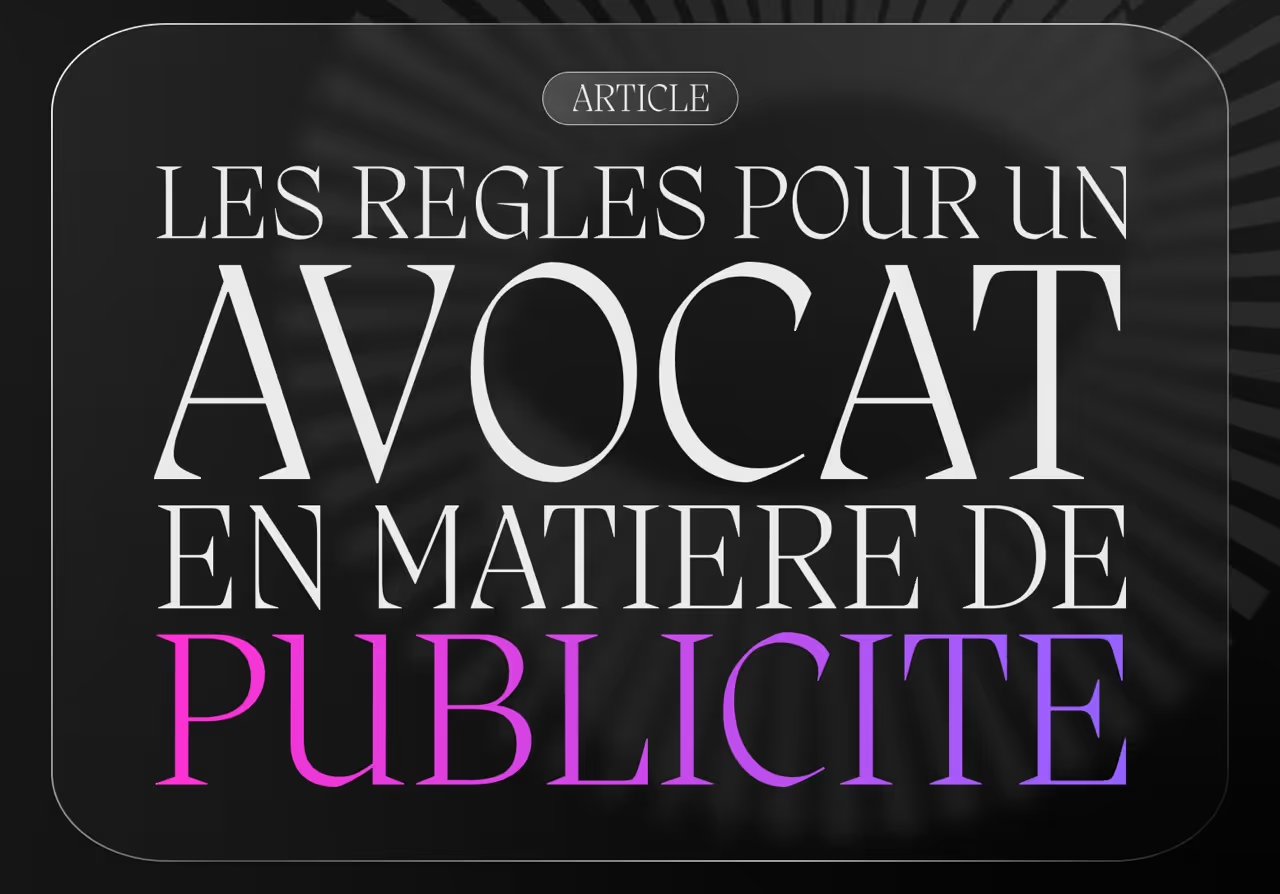
Can a lawyer advertise?
Learn what lawyers can and cannot do when it comes to advertising. Learn the authorized media, the rules to respect, and how to optimize your communication while respecting ethical principles.

Learn what lawyers can and cannot do when it comes to advertising. Learn the authorized media, the rules to respect, and how to optimize your communication while respecting ethical principles.
Advertising for lawyers is a delicate subject governed by strict ethical rules. To answer this problem clearly, we have sanded the Vademecum and we save you from typing 100 pages to summarize all this in a clear article that will answer all your questions.
Lawyers can use various media for their advertising, as long as they respect ethical rules:
💡 This non-exhaustive list must meet the conditions that we see below.
Concretely, you are very unhindered on the format. Make way for the conditions:
Lawyers can advertise under certain conditions. Advertising must provide honest information about the nature of the services offered and respect the essential principles of the profession. Here are a few key points:
If we repeat word for word the Vademecum : specify his status - identify himself (Me X, Cabinet X) - provide information on his location and any element allowing him to be reached - mention the bar to which he is registered - specify the practice structure to which he belongs - specify his membership in a network if this is the case.
Some practices are strictly forbidden:
💡 Good to know : it is forbidden to put “specialist”, “specialized”, “expert” or “expertise” on a website without having the specialization. So replace with our areas of intervention.
Many lawyers don't want to send emails to people who might be interested in their service. Personalized solicitation is a specific form of direct advertising:
💡 Attention however: Press releases and press information from third parties or customers may be cited by firms as part of their communication.
That's why big deals can be communicated. This is why the sites of the largest firms are focused on communication around their achievements (especially in M&A - PE - Restructuring). As long as these facts are taken up by third parties, you risk nothing (which is why it is important to communicate with the legal press to broadcast your victories).
It's normally forbidden! However, many lawyers allow themselves to do so and this rule is not respected in practice.
The CNB says, “He is.”recommended“it is up to the lawyer not to relay his client's opinion or comment simply for the sake of advertising. It is a simple recommendation, so you can relay this information without problems on your social networks.
The president of each bar is responsible for control personalized advertising and solicitations from lawyers to ensure that they respect ethical rules. The advertisements must be communicated without delay to the Council of the Order. However, this does not apply to ads on social networks. Regarding the Paris Bar, you normally no longer need to have it validated by the order. However, they are likely to come and check your website.
No site built by Ourama has received sanctions!
To go further and in detail, here is the Vademecum produced by the CNB on the subject. It is (too much?) complete and very well built: Vademecum on communications.